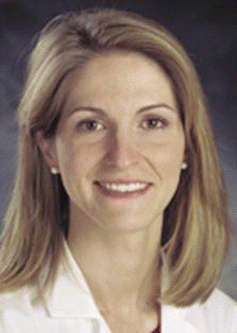“There’s nothing worse than taking call and looking after a patient at a hospital, and then having them transferred to their Kaiser Permanente doctor who was not on call that night.” – Steven P. Davison, MD, DDS
Explore This Issue
June 2006
No Dollars for Private Practice Physicians
Even though emergency rooms are overburdened by uninsured patients, hospitals receive subsidies which do not extend to individual physicians and subspecialists, pointed out Steven P. Davison, MD, DDS, Assistant Professor of Plastic Surgery at Georgetown University Hospital in Washington, DC. “The hospitals have an avenue for funding,” said Dr. Davison. “Portions of Medicaid or indemnity from car insurance are virtually—sucked up’ by the hospital in the first 24 hours. But none of that trickles down to the private practice, or fee for service, physicians.”
“For hospitals,” continued Dr. Davison, “the emergency room is becoming and bigger and bigger archway for a source of admissions [and income]. They do get paid [for patients in the ER]—not much, often—and they have an avenue for funding. If they didn’t, they’d shut their ERs.”
What hospitals do to maintain their ER certification, said Dr. Davison, is to hire physicians who “do the bulk of the heavy lifting” for ER coverage: trauma surgeons, intensivists, and orthopedists are often on staff. But hospitals are paying less and less for the incidental coverage they are also required to offer: otolaryngology–head and neck surgery, plastic surgery, ophthalmology, and oral surgery, for instance. Depending on the hospital and the region, some may demand that these subspecialists take call in return for retaining hospital privileges, a situation Dr. Davison calls a restriction of trade.
“At our hospital, it’s not a practicebuilder for ENTs to take ER call. We see a lot of abscesses, bleeding, and facial trauma in our ER, but not your bread-and-butter sinus and ear cases.” – Mary Talley Bowden, MD
Norman J. Harris, MD, an otolaryngologist–head and neck surgeon in private practice in Fullerton, Calif., agrees with this analysis. “The drive [for hospitals] to keep people on call is no longer a function of need in the community,” he said. “It’s a function of certification to be a paramedic receiving station, which gives them access to various kinds of income for indigent patients. But that [income] does not get passed through to physicians.”
Spiraling Downward
The managed care environment, especially in states such as California, has compounded the problem. Patients in managed care plans who go to the emergency room and are seen by an on-call specialist will most likely be transferred to an in-plan physician for follow-up care. Furthermore, the insurance company may often contest the on-call specialist’s billing for his or her services.

Leave a Reply